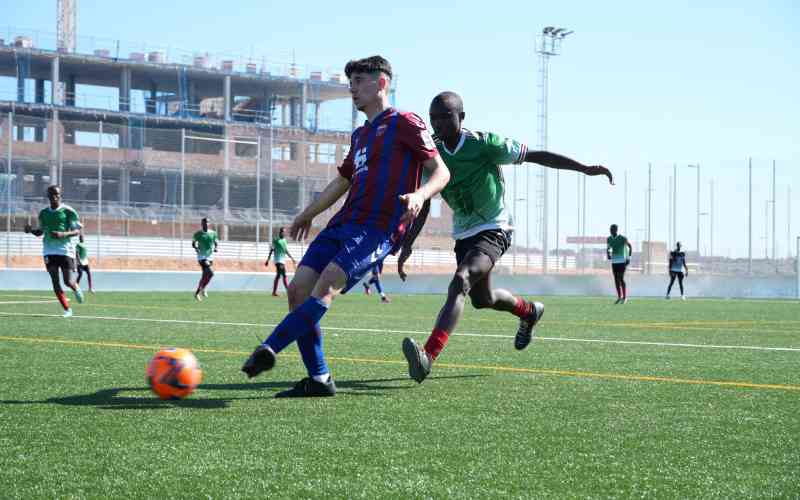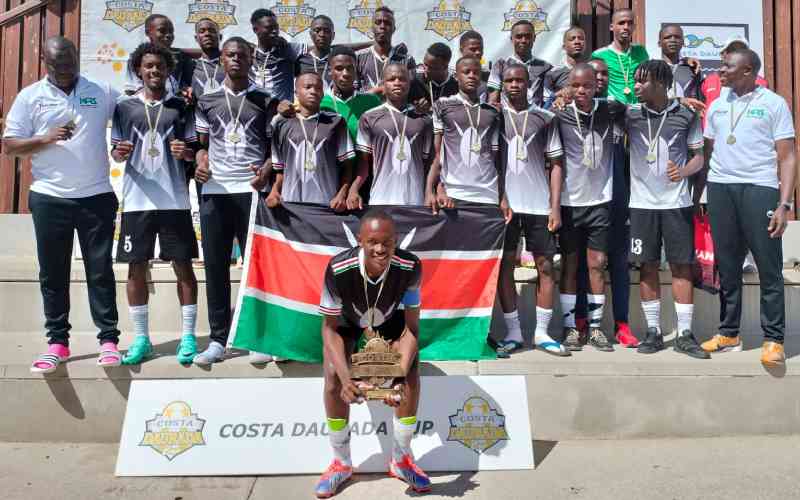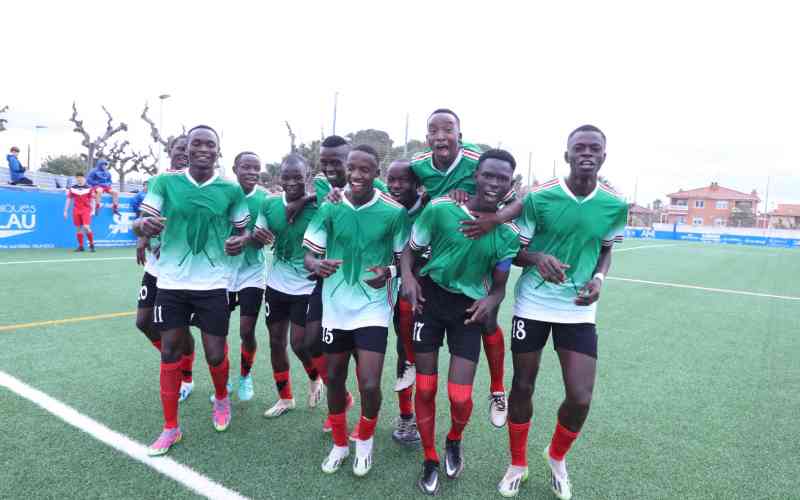NAIROBI: The fuss is over in Homa Bay. Young Moses Otieno Kajwang is the county’s Senator-elect. He is the heir to his late brother’s position. I say “the fuss” because of the fracas and violence that informed the electoral process. However, “the farce” may be more precise.
The outcome of the election was always known – another exercise in Kenya’s endless electoral fiction. The captain anoints his preferred candidate. The rest is a roller-coaster ride to victory. This is regardless that the electorate hardly knows the candidate. All that matters is that they have been told, “This is the tribe’s candidate.” With this are sown the seeds of poor leadership. The new man does not hold himself accountable to the electorate. His focus is on hymns, psalms and sundry canticles in favour of the leader.
Poor leadership and compromised electoral processes are interdependent. They feed upon each other like the mutual saprophytes that they are. In this regard, are those who have accused Kanu of high handedness guilty of the same sin? Let me jog your memory. In 1964 Kenya became a de facto one party regime. The political kingpins in Kanu argued that this would consolidate national unity. In the driver’s seat was the triad of Jomo Kenyatta, Tom Mboya and Jaramogi Oginga Odinga.
They killed the Opposition Kadu Party “in the interest of national unity.” But instead of national unity what emerged was one party dictatorship. One of the first victims of this dictatorship was, ironically, Jaramogi himself. In 1965, when Jaramogi was deputy party leader, Mboya and Kenyatta conspired to undermine him at the infamous Limuru Conference. They introduced eight deputy party presidencies, to be distributed across the country. To rub salt into injury, they asked that the positions should be contested for. They carefully choreographed the process to ensure that Jaramogi would lose.
An angry Jaramogi quit Kanu to form the Kenya People’s Union (KPU) Party. KPU did terribly in the subsequent “Little General Election.” This was another Mboya orchestra to humiliate Jaramogi. The 1965 elections were easily the first exercise in Kenya’s electoral fiction. The rest is history. By 1969, Kenya was effectively back to a one party dispensation. Mboya had stopped the assassin’s bullet in broad daylight, in the streets of Nairobi. This, despite his muddy work for Kanu and President Kenyatta. Jaramogi, who had helped to kill Kadu, was cooling his feet in detention without trial. With him was a retinue of KPU stalwarts.
The long and short of it was that Kanu had killed democracy. Indeed Kanu, seen as the party that brought independence, was also dead. But Kanu was alive and well as a vehicle of dictatorship. In the post Kenyatta years, they made it the only party by law (1981). They also introduced the “party clearance” practice. This meant that you contested for elective office only after they cleared you to run. You had to be “a Kanu and Nyayo person.” Many political careers came to ruin. Political sycophants meanwhile dominated the landscape. They thrived.
It was behind such a background that Kenyans began agitating for removal of Section 2 A from the Constitution to restore multiparty democracy. We wanted alternative platforms from which people could contest for elections – especially to Parliament. Unfortunately for us, the vehicles that have since spangled the national landscape have been ethnic political fish trawlers. The political party means nothing beyond being a tool for dominance in the hands of a tribal political despot. It is not yet Uhuru in the political party.
Fed on a super diet of tribal power alcohol the tribe is ready to do anything the tribal leader says, from Kiambu to Homa Bay. And so you end up with parodies and political parakeets allover the place. Their only commitment is to themselves and to reciting psalms and hymnals in praise of the leader. They understand notions like good and bad purely and exclusively through the prism of the misleader’s eyes.
It is in this respect that we must see the senatorial electoral fiction in Homa Bay. In March 2012 I wrote in this column that Raila Odinga, the ODM leader lived on the right side of history. I lent him my endorsement for the presidential race. But Raila Odinga has steadily shifted from the centre. He has joined the league of Kenya’s great men who have made great mistakes. When a great man makes great mistakes, his greatness eventually counts for nothing. For the mistakes outlive him. That was what the poet said. To paraphrase him, “The good that people do is often buried with their bones. However, their bad acts outlive them.”
In the end, we must accept that there have been two Raila Odingas. There has been the Raila who fought for the Second Liberation. He lived on the right side of history. And there is today the Raila who is acting the Kanu script. He is on the wrong side of history. Like the Kanu leaders before him, he is a Nyayo man. However, where Nyayo leaders swam in the national ocean, he swims in a tribal fishpond. Their lowest common factor is the dictum, “Follow my Nyayo.”
But were Nyayo leaders a lot more sophisticated than the ODM leader? Even as they had it their way, they always pretended to conduct a democratic election. Today ODM boasts of a handpicked national party leadership. It must fill up men and women of conscience with sadness and despair to note that even youthful democrats of yesterday like Secretary General Ababu Namwamba sit comfortably in these handpicked positions. The leader is meanwhile drilling them through the art of sycophancy.
Our people say that stench is stench, no matter whose intestines may be responsible for it. It cannot be “bad stench” because it is from the insides of a street urchin and “good stench” because it is from the palace. If it stank when Kanu did it, it must stink when ODM does it. But I suppose congratulations are in order? Congratulations, Senator-elect Moses Otieno Kajwang. Welcome to the Club, and watch this space.
 The Standard Group Plc is a
multi-media organization with investments in media platforms spanning newspaper
print operations, television, radio broadcasting, digital and online services. The
Standard Group is recognized as a leading multi-media house in Kenya with a key
influence in matters of national and international interest.
The Standard Group Plc is a
multi-media organization with investments in media platforms spanning newspaper
print operations, television, radio broadcasting, digital and online services. The
Standard Group is recognized as a leading multi-media house in Kenya with a key
influence in matters of national and international interest.
 The Standard Group Plc is a
multi-media organization with investments in media platforms spanning newspaper
print operations, television, radio broadcasting, digital and online services. The
Standard Group is recognized as a leading multi-media house in Kenya with a key
influence in matters of national and international interest.
The Standard Group Plc is a
multi-media organization with investments in media platforms spanning newspaper
print operations, television, radio broadcasting, digital and online services. The
Standard Group is recognized as a leading multi-media house in Kenya with a key
influence in matters of national and international interest.









